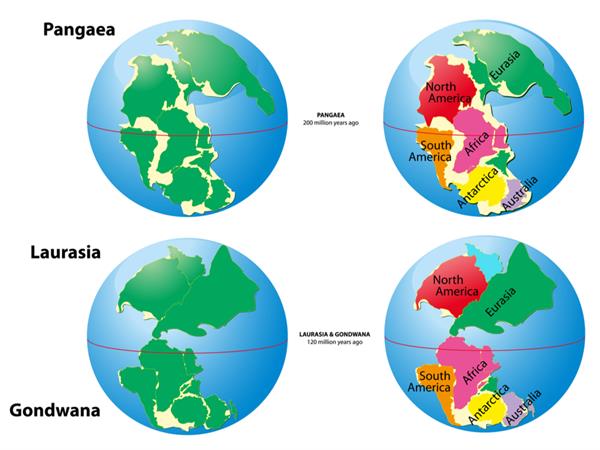PDF chapter test TRY NOW
Movements of Continental Plates
While the plates move, various types of forces acting give rise to different relief features.
When there is a lateral compressional force, the plates are forced to move upwards and downwards. This is called ‘Folding’.
The plates are in continuous motion with an average rate of few centimetres per year. The movement might appear slow, but over millions of years, the plates and the continents driving on them move a long way. For instance, about 250million years ago, the Indian plate was a part of the Gondwana land, which comprised modern Africa, Australia, Antarctica, and South America.

About 140million\ years ago, the Indian plate broke away from the ancient supercontinent ‘Gondwana’ and started moving north and collided with Asia. This collision with the Eurasian Plate along the boundary between India and Nepal formed the orogenic belt that created the Tibetan Plateau and the mighty Himalayan Mountains.
